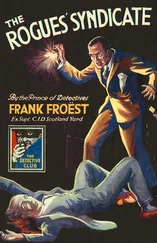'Why bother to extract it in the first place?' asked one of the boys. 'Why not leave it down there?'
'Because it could solve all our energy problems,' the girl chimed in. She pushed to the front of the group. 'That's what it said in the stuff about the Japanese. They don't have natural fuels of their own so they're forced to import them. Methane would solve the problem.'
'That's stupid' said the other kid. 'If something causes more problems than it solves, it doesn't solve anything.'
Johanson grinned.
'You both have a point.' Bohrmann raised his hands in a conciliatory gesture. 'Methane hydrates could solve our energy problems, and that alone is enough to ensure that it's not a purely scientific question. The energy industry has a big interest in hydrates research. According to our estimates, marine gas hydrates contain twice as much burnable methane as all the other known deposits of gas, oil and coal combined. Just take the hydrate ridge off the coast of America. OK, so it extends over twenty-six thousand square kilometres, but there are thirty-five gigatons of hydrate in there. That's equivalent to one hundred times the amount of natural gas used in the whole of America in a year.'
'Sounds impressive,' Johanson whispered to Sahling. I'd no idea there was so much.'
'There's far more than that. I can never remember the figures, but Gerhard could tell you exactly.'
Bohrmann continued as if on cue: 'We can't know for sure, but we think over ten thousand gigatons of methane may be trapped in marine gas hydrates. And then you've got the onshore hydrates under the permafrost in Alaska and Siberia. To give you an idea of the quantities in question, all the available reserves of coal, oil and gas come to barely five thousand gigatons – less than half the amount of methane stored within the hydrates. No wonder the energy industry would give anything to know how to extract it. Just one per cent of that methane would double the United States' fuel reserves in an instant – and fuel consumption there is far higher than anywhere else in the world. Unfortunately it's the usual story. From the perspective of the energy industry, hydrates are an enormous reserve of untapped fuel; but scientists see them as a time bomb. The only option is for both sides to work together- in the interest of mankind, of course. Well, that brings us to the end of our tour. Thanks for coming.' He smiled to himself 'And for listening, of course.'
'Not to mention understanding,' Johanson murmured.
'Well,' said Sahling, 'we hope so.'
'I PICTURED YOU DIFFERENTLY,' said Johanson. He and Bohrmann shook hands. 'On your web page you've got a moustache.'
'I shaved it off,' Bohrmann fingered his upper lip. 'Your fault.'
'How come?'
'It happened this morning. I was shaving and thinking about your worm, when suddenly I could picture it clearly, wriggling across the mirror in front of me, swinging its tail in a loop. Too bad that my hand and the razor followed. I chopped off a corner and had to sacrifice the rest to science.'
'So now I've got a moustache on my conscience.' Johanson was amused.
'Oh, don't worry – it'll grow back in no time when the next trip starts. On the RV we all sprout beards. The lab's this way. Or would you like some coffee first?'
'No, thanks. I'm dying to see what you've got. So, you're off on another expedition?'
'In the autumn.' Bohrmann led them along glass corridors. 'We'll be heading for the cold seeps in the Aleutian subduction zone. You were lucky to catch me in Kiel. I got back from the Antarctic two weeks ago, after nearly eight months at sea. The day after we docked, I got your call.'
'What kept you there for so long?'
'Delivering over-winterers.'
'Over-winterers?'
Bohrmann laughed.
'Over-winter scientists and technicians. They started work at the station in December. They're extracting ice cores from a depth of four hundred and fifty metres. Unbelievable, isn't it? Ice as old as that can tell us the history of our climate over the last seven thousand years.'
Johanson was reminded of the taxi driver. 'Most people wouldn't be impressed,' he said. 'As far as they're concerned, climate history won't help eliminate world poverty or win the next world cup.'
'We're partly to blame for that, though. Science tends to keep itself to itself.'
'That wasn't the impression I got from your lecture just now.'
'I sometimes ask myself whether all this PR business does any good,' said Bohrmann, as he set off down a flight of stairs. 'Open days are all very well, but they don't change the general mindset. We had one recently and it was packed; but I bet if you'd asked afterwards whether we deserved an extra ten million in funding…'
Johanson thought for a moment. Then he said, 'maybe the real problem is the gulf between the different branches of science, don't you think?'
'You mean we don't communicate enough?'
'Exactly. The same applies to science and industry, and science and the military.'
'While between science and the oil industry …' Bohrmann said pointedly.
Johanson smiled. 'I'm here because someone needs an answer,' he said, 'not to force one out of you.'
'Big business and the military depend on science, whether they like it or not,' said Sahling. 'And we do communicate, you know. If you ask me, it's more a question of each party not being able to convey its point of view.'
'Or not wanting to.'
'Right. Research into ice cores can help prevent people starving – but also to build weapons. We're all looking at the same thing, but everyone sees something different.'
'And they don't see the rest' Bohrmann nodded. 'The specimens you sent us, Dr Johanson, are the perfect example. Now I don't know whether the presence of worms should affect plans for building on the slope but, without more evidence, I'd be inclined to assume so. In the interests of safety, I'd advise against construction. Maybe that's the fundamental difference between science and industry. The way we scientists see it, we don't know enough about the role of the worms so we can't recommend drilling on the slope. The oil companies will start from exactly the same premise but reach the opposite conclusion.'
'In short, unless someone proves that the worms are affecting the slope, they won't change the plans.' Johanson looked at him. 'What do you think? How important are the worms?'
'I can't say for sure. The specimens you sent us are unusual, to say the least. I don't want to get your hopes up – I could have explained our findings on the telephone, but I thought you might like to see a bit more. And there's plenty we can show you here.'
They came to a steel door. Bohrmann pressed a switch on the wall and it slid open noiselessly. Through the doorway was a hall, and in the middle of the hall an enormous metal container, as big as a two-storey house. It was studded with portholes at regular intervals. Steel ladders led up to walkways and past pieces of machinery that were connected to its sides with pipes.
Johanson had seen photos of the lab on the web, but nothing had prepared him for its dimensions. The water in the container was kept at such high pressure that the idea of it made him feel queasy. It would kill a human in less than a minute. The deep-sea simulation chamber was the reason he'd sent the worms here. It contained an artificial world complete with seabed, continental shelf and slope.
Bohrmann flipped a switch to close the door behind them. 'Not everyone is convinced of the benefits of the pressure lab,' he said. 'Even the simulator can only give us a rough picture of what really happens on the seabed, but it saves having to launch an expedition every time there's something we need to investigate. The trouble with marine geoscience is that we never see more than a tiny fraction of the whole. At least with the simulator we can try out general hypotheses. It allows us to study the dynamics of methane hydrates under changing conditions.'
Читать дальше












